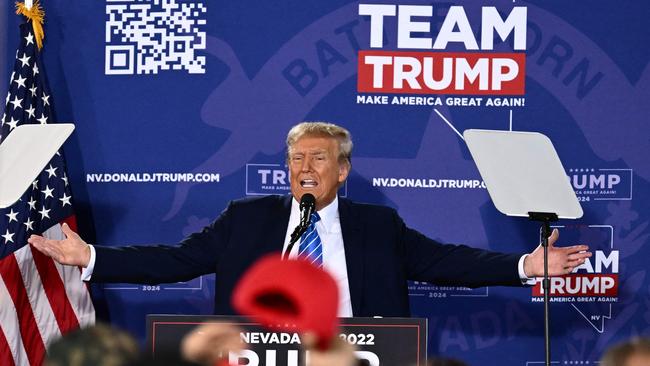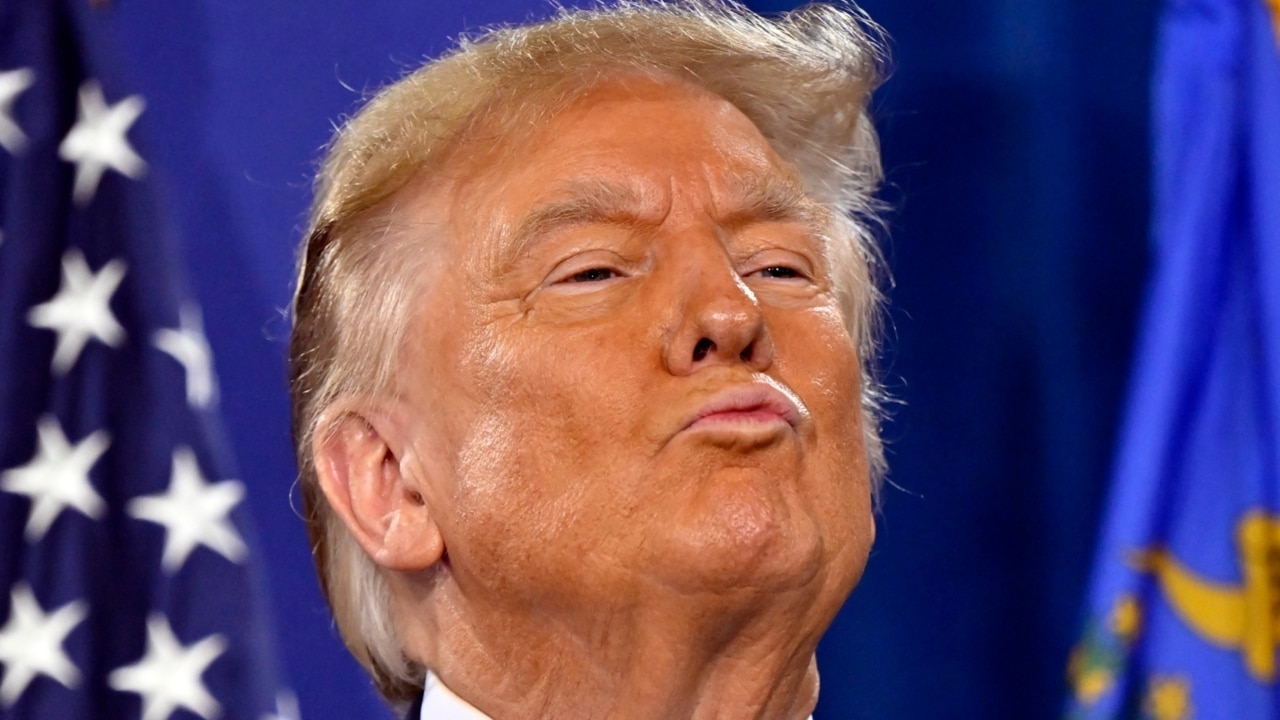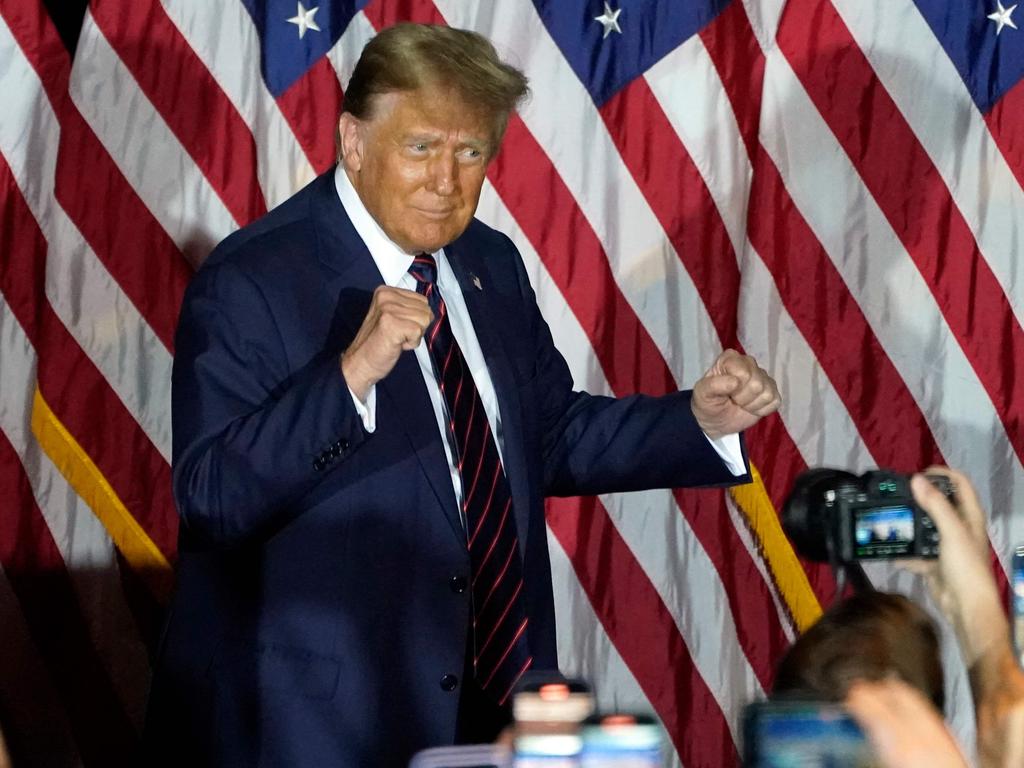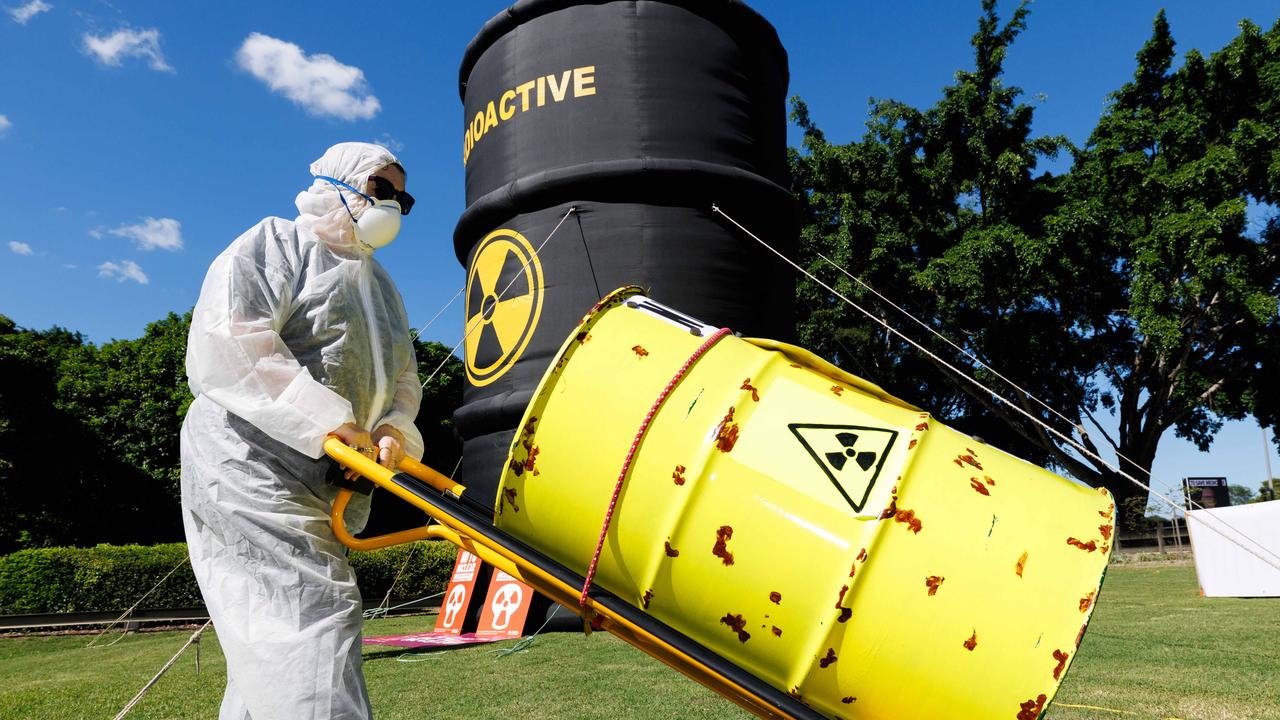
The $US83m ($126m) a Manhattan court has told him to pay his sexual assault accuser E Jean Carroll could be small change compared with the penalty he’s likely to face for allegedly exaggerating the value of his home.
If presiding judge Arthur Engoron follows the prosecution’s recommendations, he will fine Trump $US370m and destroy the Trump organisation, banning both it and Trump from operating in the nation’s third-largest state and its financial heart.
Both cases stand out for their political motivation and extreme penalties. In the longer run, they will sap respect for the US judiciary and boost Trump in his bid for the White House.
Take the fraud case, brought by the New York Attorney General Letitia James, who was elected to office in 2019 on a promise to investigate and prosecute Donald Trump.
The alleged fraud, revolving around claimed value of his home Mar-A-Lago, created no victims. Trump said it was close to $US1bn, the judge said it was closer to $US27m.
No banks or insurance companies said Trump’s valuation affected their business decisions. All loans were repaid, and no one lost any money.
It’s hard to imagine a better case of “show me the man, and I’ll find the crime”. If a state attorney general’s office is intent on finding a crime, they’ll find one, such is the vast proliferation of laws that blight modern nations, guaranteeing there’s always something someone has allegedly done wrong. Indeed, Associated Press determined Trump’s organisation was the “only big business” in 70 years of NY business fraud cases to have been “threatened with a shutdown without a showing of obvious victims and major losses”, in a research note published on January 29.
“The only case the AP found of a business dissolved under the anti-fraud law without citing actual victims or losses was a relatively small company closed in 1972 for writing term papers for college students,” it said, highlighting the gratuitous, vindictive nature of the penalties demanded.
The defamation case is perhaps more ludicrous, emblematic of a #Metoo movement that risks beclowning itself. Inexplicably, given not a shred of evidence of wrongdoing existed beyond one person’s word against another’s, a Manhattan jury last April found Trump sexually assaulted E Jean Carroll in 1995 or 1996 (she couldn’t remember which year the crime supposedly occurred) in a fancy department store.


Carroll, a high-profile advice columnist who regularly appeared on TV, didn’t seek justice until 2019, when she broke the allegation against Trump, not by going to the police or even a friendly journalist, but in her book What Do We Really Need Men For?, becoming a darling of the anti-Trump movement.
Trump denied the allegations in 2019 and publicly called her a “whack job” whom he “had never met”, comments that were later ruled defamatory. Carroll stated on top-rating CNN with Anderson Cooper that same year that most people thought rape was “sexy”.
Carroll said in sworn deposition that she decided to take legal action only after bumping into trenchant Trump critic, lawyer George Conway, at a Manhattan cocktail party hosted by scion of the anti-Trump forces, Molly Jong Fast, according to an investigation by Washington journalist Byron York.

Trump lost and was fined $US5m, in a case helped along by the passage in 2022 of New York’s Adult Survivors Act, which allowed individuals to sue for sexual assault regardless of whether the statute of limitations had long since passed. He continued to deny the allegation and was fined again, this time $US83m.
At least that award was more consistent with the equally ridiculous punishment meted out to former Trump adviser Rudy Giuliani, who was ordered to pay two women in Georgia whom he had accused of electoral fraud a combined $US148m.
Were these juries of his peers, as Trump’s cheering detractors’ claim? More than 86 per cent of Manhattan residents voted for Joe Biden in 2020, more than any other part of the US except Washington. Later it also emerged tech billionaire and top Democrat (and Nikki Haley) donor Reid Hoffman was paying Carroll’s legal fees. As columnist Bret Stephens of The New York Times pointed out this week: “We now have a situation in which a socially unpopular figure can be accused – in the jurisdiction where he is hated the most – of a heinous crime without having any realistic means of defending himself, because the alleged crime dates back decades and any kind of forensic evidence is long gone”.
The American left cheered as a rich old lady was made even richer by being awarded 1389 times the median full-time annual wage of American workers ($60,000), a vast sum few could imagine earning in a lifetime.
Apart from being an insult to ordinary people, most of whom receive no compensation for their suffering, real or imagined, such awards corrupt society, encouraging lawyers to encourage individuals to fake grievance for financial gain. Most would love to be defamed for even a fraction of that grotesque sum. Others might question the value of their tax dollars paying for a judiciary to pursue victimless crimes of leading presidential candidates.
The two cases have also undermined the validity of the more serious federal indictments against Trump over election interference and classified documents, allowing his supporters to more readily dismiss them all as part of a lawfare campaign.
They might bankrupt him, but they could also deliver him the White House again.







Donald Trump’s bad week on the personal finances front is about to become a lot worse.